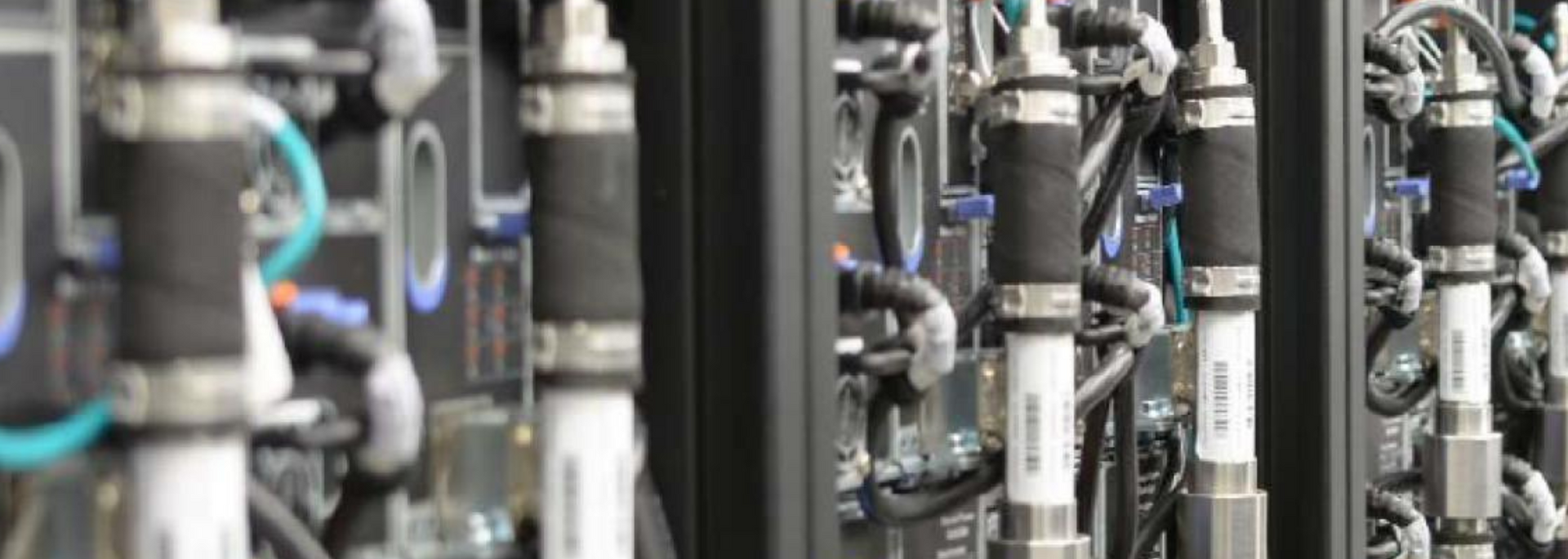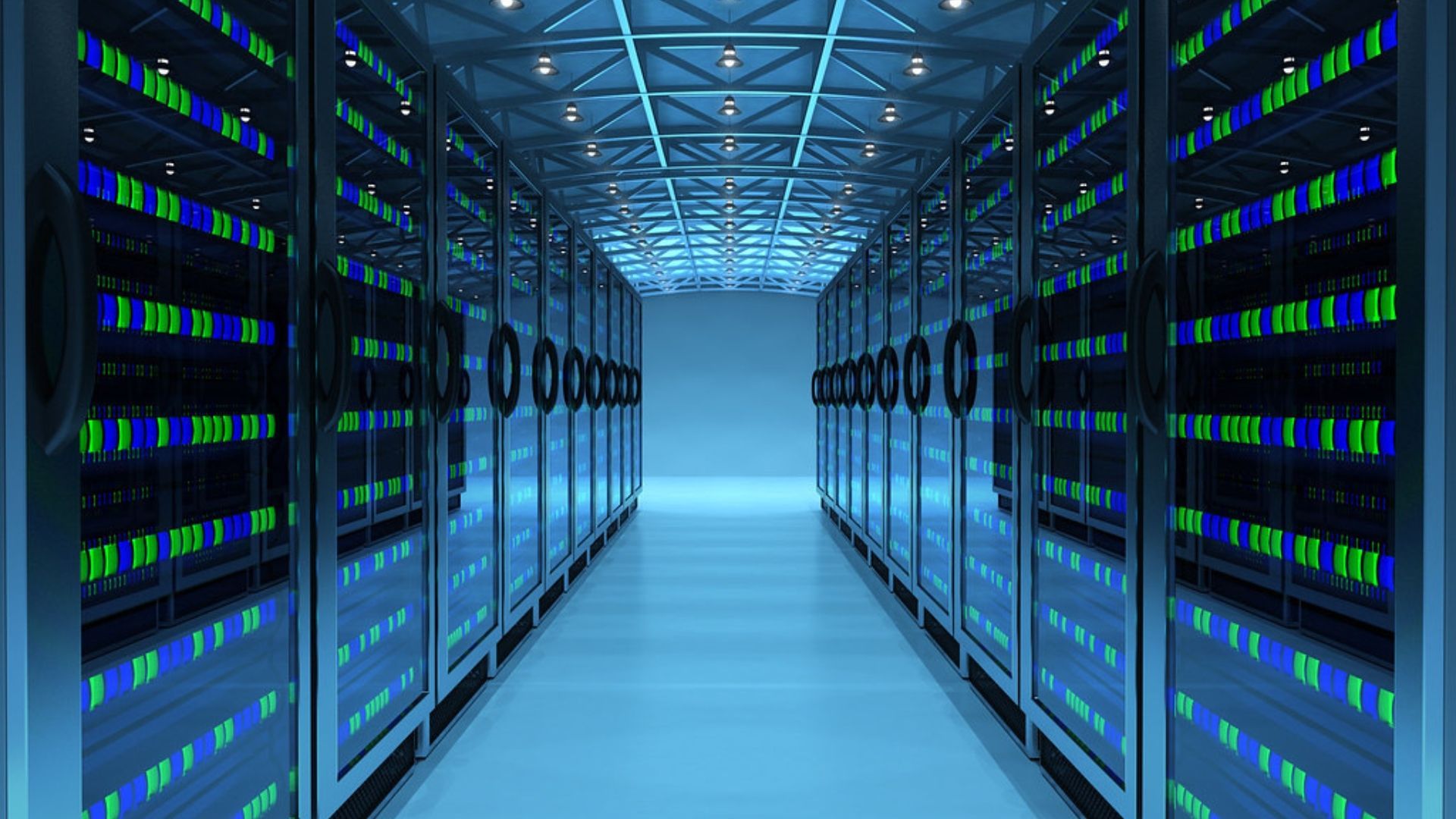How do data centres stay cool in warm climates?
It's hard to keep data centres cool in tropical climates. Learn how a team in Singapore is making a difference.

These days, data centres are as essential to our day-to-day lives as sewers, electricity lines and gas pipes. Without them, you'd be hard-pressed to get most jobs done – and you'd soon notice there were fewer ways to keep yourself entertained in the evenings.
Data centres, however, are a double-edged sword. This is because they're prone to overheating and require expensive, complex cooling systems to cool them down. It's a bit like the fan on your laptop – only these systems have to cool thousands of servers in hyperscale facilities across the globe.
This conflicts sharply with most organisations' and governments' commitment to reducing carbon emissions. How can we square our need for speed with our need for a liveable future?
The issue gets more complex in tropical climates, where it's not just people who need cooling down. Take
Singapore
. It has a mean daily temperature of between 31°C and 33°C and a mean annual relative humidity of 82%. In rainy seasons, humidity frequently reaches 100%.
This intense humidity poses a threat to data centres. Left unchecked, it can corrode the electronic equipment which a data centre is built to protect. But to check it requires huge resources: conventional air cooling and mechanical ventilation systems barely cut it.
This is the problem that the National University of Singapore (NUS) is trying to solve. It's doing so with its Sustainable Data Centre Testbed. Could it be on to something?
What is the Sustainable Data Centre Testbed trying to achieve?
At the NUS Sustainable Data Centre Testbed, the aim is to figure out ways to run data centres efficiently and greenly in hot, humid climates like Singapore.
Singapore is a highly developed economy with a pro-business agenda. To this end, it's embraced the digital economy, with around
120 data centres
at the time of writing (compared to 514 in the UK, 449 in China, and 5,381 in the USA).
Because of this commitment to cloud technologies, it's important for Singapore to find ways to operate more sustainably.
The NUS testbed has a noble aim: to cut the carbon emitted by a typical data centre. It primarily seeks to do this by using 40% less energy and 30% to 40% less water than usual.
A key part of the process is to compare liquid cooling systems with air cooling systems. The team has raised the temperature of the air supply going into the data hall, thereby optimising the amount of energy consumed.
As the "testbed" moniker suggests, this data centre is built for observation. The data hall is laid out symmetrically, meaning the team can carry out side-by-side comparisons of the two types of cooling.
What's so bad about liquid cooling?
In today's tropical data centres, about 40% of the energy consumed is because of liquid cooling. To operate sustainably, alternative methods need to be found.
This doesn't mean jettisoning liquid cooling entirely. It is, in fact, a more effective way of transferring heat than air. The problem is inefficiency.

The team's facilities support both direct-chip liquid cooling and immersion cooling – the two most prevalent types of liquid cooling. It's been comparing air-cooled and liquid-cooled servers to figure out the most efficient configurations available.
The testbed team has made several discoveries. First, that the air-cooled system reduces the servers' heat by up to 60%. Second, that even when the liquid cooling is turned off, the air-cooled system can still remove up to 60% of heat. And third, that liquid cooling can cut energy use by 30% and give computing performance a lift of 40%.
It's been using state-of-the-art cooling technologies, including Meta's StatePoint Liquid Cooling unit. This device is helping the team ascertain how indirect evaporative cooling techniques can perform in tropical climates like Singapore.
These techniques are "indirect" because they cut mechanical cooling and make greater use of cooler air from outside the facility. This is being combined with a desiccant-coated heat exchanger.
On top of this, the team is looking at ways to recycle waste heat from liquid cooling. It's using this waste heat to regenerate desiccant materials.
Taken together, these experiments seek to improve data centre sustainability by assessing alternative cooling technologies under real-world conditions. It aims to demonstrate these outcomes by mid-2024 before publishing a white paper on sustainable data centre design in the fourth quarter of 2025.
Lam Khin Yong, vice president of industry at Nanyang Technical University (NTU), Singapore, puts it like this:
"The Sustainable Tropical Data Centre Testbed presents a sustainable solution for the operation and maintenance of data centres. As the world's first tropical climate data centre testbed, the [facility] sets a new standard, not just for Singapore, but as a global benchmark for the intersection of cutting-edge technology, environmental responsibility and operational efficiency in data centre infrastructure."
It's this mission to establish a "global benchmark" that makes this research so exciting. Potentially, it could help usher in a world where data centres can perform just as well without guzzling quite so much energy.
What other attempts are being made to improve the sustainability of data centres?
The testbed in Singapore is just one example of efforts being made across the globe to increase the sustainability of data centres.
Microsoft's Project Natick, for example, is an
underwater data centre
that's cooled by the sea itself. Meanwhile, in Odense, Denmark,
10% of households are kept warm
by excess heat from a hyperscale facility. Waste heat is being used in a similar way in Norway, Austria, Germany and Finland – not to mention a swimming pool in Exmouth, England.
Google, meanwhile, has publicly announced that all of its data centres will be run on carbon-free energy by 2030.
Taken together, could these attempts help keep the digital economy afloat in a more environmentally friendly way? It's hard to say – but we'll be watching the industry closely and keeping you in the loop about any more exciting developments.
Ascend is a trusted
cloud solutions
company based in Cork, Ireland. Are you looking for a cloud migration partner?
Get in touch
today for a no-obligation consultation.











